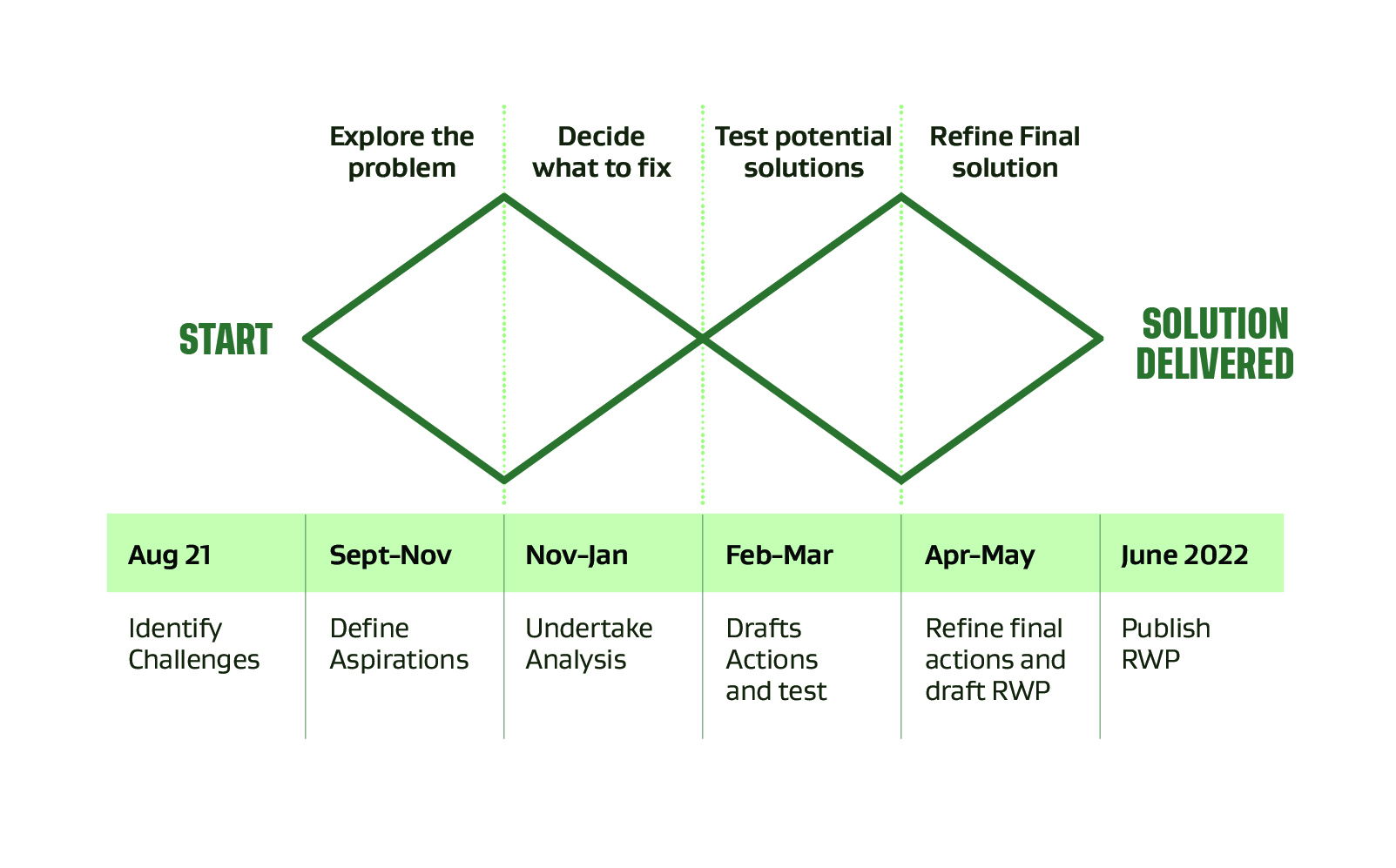Partners and stakeholders
Since forming in September 2021, the Group has prioritised building relationships across the wider Waikato region, with iwi leaders, key sectors and industry leaders, employers, education providers, youth development organisations, local and central government, and worker representatives.
On this page
The Group and Secretariat (MBIE staff dedicated to support the activity of the RSLG) organised and facilitated workshops, issued surveys, and had numerous kōrero and email correspondence with interested stakeholders across all sub-regions of the Waikato. The Group also engaged the expertise of Melissa Reynolds-Clarke for a futurist perspective on workforce development, to better respond to the impact of the future of work.
The Group’s approach followed the below double diamond framework, intentionally structured to frequently test and refine the thinking of the Group throughout all phases of the plan development.

Text description
Since September 2021, the Group has engaged with over 200 stakeholders and subject matter experts to inform the development of this plan. Groups and organisations that the RSLG directly engaged with to support the development of this plan included:
- Iwi/hapu
- Māori businesses and associations
- Industry associations / Peak Bodies
- Local Councils and EDAs
- Central Government agencies
- Unions
- Sector groups / Peak Bodies
- Business representatives
- Social services providers
- Agritech specialists
- Youth development/support organisations
- Schools and education providers
The Group intentionally went wide in its outreach to make sure that all sub-regions and stakeholders in the Waikato had an opportunity to contribute and has attempted to reflect the views and suggestions received. In some instances, feedback received was outside the scope of the Group, in which case the information was shared with the relevant agency. Where further thinking and analysis is required, this is noted for a future action of the Group.
The stakeholder engagement process helped identify a myriad of active initiatives across the Waikato region that support the many aspirations in this plan. Where possible, rather than adding further initiatives, the Group seeks to partner with stakeholders to enhance and support the growth and development of these initiatives. These intended partnerships have been noted in the action table. The Group has also recommended further funding and support towards some initiatives in order to amplify important work that is already under way.
The Group acknowledges the 6 Workforce Development Councils/Ohu Mahi (WDC) which were established in October 2021 as part of the Reform of Vocational Education (RoVE). Collaboration between RSLGs and WDCs is critical for enabling regional views and workforce needs to be reflected and considered in national standards and advice and for facilitating partnership opportunities to support regional initiatives and actions, alongside providers and other partners. The Group has ongoing conversations with many of the WDCs as well as having members serving on some WDCs.

